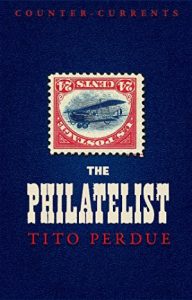The Philatelist
Posted By Tito Perdue On In Books [1]Tito Perdue
[1]Tito Perdue
The Philatelist
Counter-Currents, 2017
100 pages
There are three formats for The Philatelist:
- Hardcover: $20 (add $5 for postage, $12 for postage to Canada, Australia, New Zealand, & the Far East)
- Paperback: $10 (add $5 for postage, $12 for postage to Canada, Australia, New Zealand, & the Far East)
- E-book: $3
How to order The Philatelist:
There are three ways you can send payment:
- By credit card or bank transfer
- By mail
- By crypto-currency transfer
To use a credit card or bank transfer please email [email protected] [2]
Steps for mailing in your payment:
- Download and print our order form (PDF [3], Word [4])
- If you wish to order multiple books, please email a list of the titles you wish to order and your mailing address to [email protected] [2], and we will give you an exact quote on postage anywhere in the world.
- Send payment to the address on the order form.
- Please allow up to four weeks for delivery.
Steps for paying with crypto-currencies:
- Determine which books you wish to order, and how many.
- If you wish to order multiple books, please email a list of the titles you wish to order and your mailing address to [email protected] [2], and we will give you an exact quote on postage anywhere in the world.
- Choose a crypto-currency option and send payment to one of our addresses here [5].
- Email the order and the crypto payment receipt (so we know what transfer is yours) to [email protected] [2]
About The Philatelist
Tito Perdue’s The Philatelist is a novella about the joys of stamp collecting as a refuge from an unhappy life. The Philatelist is paired with the short story “Good Things in Tiny Places,” read on the occasion of the author receiving the 2015 H. P. Lovecraft Prize for Literature.
“It happens more than just sometimes that overly refined persons like thee and me may opt to turn away from ordinary things and seek entry into a more perfect world than this one. I’m thinking about art galleries, concert halls, coin and stamp collections, ingenious mechanical devices or a well-played chess match. People like you spend too much time gazing at the stars while others, like my good friend who offers us a case study of the type, has traded away his life in a still-continuing struggle to assemble a non-representative array of the world’s most beautiful postage stamps. A little custodial ‘art gallery,’ he calls it, his own bespoken domain after three failed marriages and a deleterious son. All the elements, I’ve been told, can be found in a single drop of sea water. So, too, with a choice collection of the world’s postage brought together for aesthetic purposes. Thus my friend. One doesn’t need to be a good person, remember, to be extraordinarily interesting anyway.” — From the author